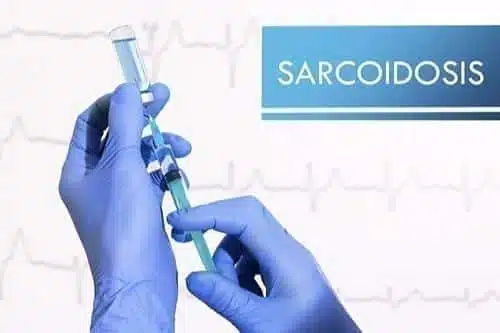
This post discusses Sarcoidosis and Social Security Disability benefits. If you have been diagnosed with Sarcoidosis read on for how Social Security will evaluate your claim for disability.
Types of Disability Benefits
Social Security offers two main types of disability benefits: Social Security Disability Insurance (SSDI) and Supplemental Security Income (SSI). SSDI is based on the credits from the work you have done in your life while SSI is a need based program. You must be found disabled under SSA's Five Step Sequential Evaluation before you are entitled to either benefit.
What is Sarcoidosis?
Sarcoidosis is the growth of tiny collections of inflammatory cells in different parts of your body. Via The Mayo Clinic . These inflammatory cells form lumps called granuloma(s). When an organ has many granulomas, it can affect the way the organ works. The most common organ affected is the lungs (pulmonary sarcoidosis) but any body organ can be affected (e.g. skin, lymph nodes, heart, brain, liver, eyes and nervous system). Via NIH .
The actual cause of Sarcoidosis is unknown but it may be caused by the body’s immune system responding to a foreign substance in the body. There is no cure for Sarcoidosis and many people with the disease only have mild symptoms. But in some cases, Sarcoidosis can lead to organ damage.
Sarcoidosis is usually diagnosed by physical exam, lab testing, x-rays or a pulmonary function test (PFT). The symptoms experienced vary depending on which organ(s) of the body is affected. For respiratory disorders (lungs): shortness of breath, chest pain and a dry cough are symptoms. For other parts of your body: a scaly rash, red bumps on your legs, fever, sore eyes, and swollen ankles are all possible symptoms. In addition, fatigue, weakness and weight loss may occur. Via the American Lung Association .
Methotrexate, Plaquenil and Imuran are all medications used to treat Sarcoidosis sufferers. Unfortunately, these medications can have their own side effects that can render one disabled.
Can you get disability for Sarcoidosis?
As with every disability case in front of the Social Security Administration, the name of your illness is not as important as the severity of your symptoms. If you have Sarcoidosis with mild symptoms that do not affect your ability to work, you will have a difficult time proving that you are disabled to Social Security. In the alternative, if your Sarcoid has severely affected your ability to breath or complete activities of daily living, you will have a better chance of winning your disability claim.
The Social Security Administration will evaluate your Sarcoidosis based on what body organ has been affected. Lungs would be evaluated under 3.00 Respiratory Adult (For a discussion of the pulmonary listings look here ). Eyes would be evaluated under 2.00 Special Senses and Speech (For a discussion of the vision listings look here ). Heart Issues and Skin Disorders are also potential listings that may apply to someone with Sarcoidosis.
Even if you do not meet the above mentioned listings (most people do not) you still may be found disabled based on your Sarcoidosis if it causes functional limitations that prevent you from performing basic work activities. These limitations can be used to find you disabled under SSA's Medical Vocational Guidelines (The Grids) if you are 50 years of age or older.
Sarcoidosis may co-occur with other inflammatory diseases. The combination of your impairments may also prevent you from working. If you have been diagnosed with Sarcoidosis and are unable to work, file your claim for SSDI/SSI benefits as soon as possible.
The Bishop Law Firm represents clients in Raleigh and surrounding areas in NC. Call us today for a free case evaluation, (919) 615-3095.
Also read The Social Security Disability Process

